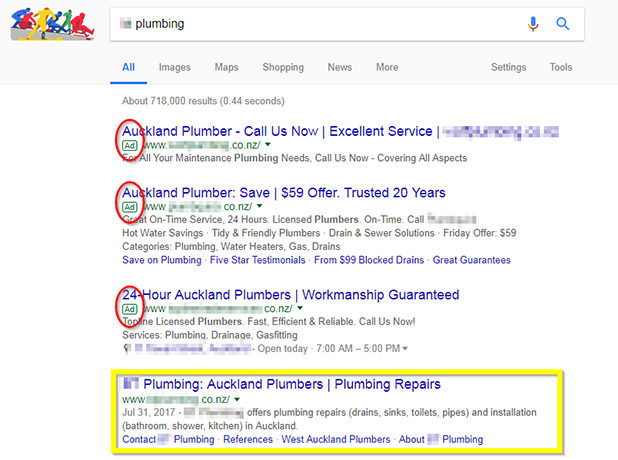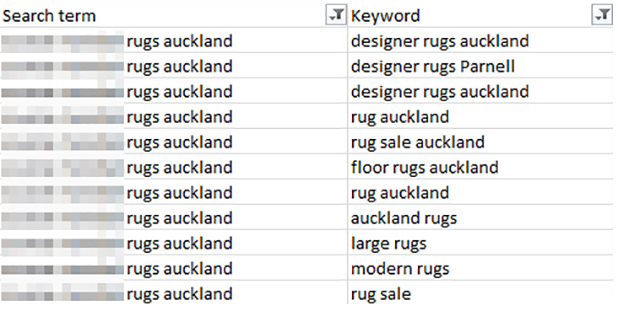
As a business owner or marketer I’m sure you’ve asked yourself the following question: “Should I bid on my business’ brand name as a keyword?” Good question! Let’s take a look in more detail at some points you should consider when making this decision.
The first consideration is, are you paying for something that you would normally get for free? You may have a strong brand name already, you may have a lot of repeat business or prospects who have heard of you through other forms of advertising. Are these people more likely to click on a paid ad or go hunting for your organic result? Not bidding on your brand name might be a way to avoid spending your marketing budget on unnecessary clicks. Whilst this may help to conserve your marketing budget, there are many upsides to bidding on your brand name.
Benefit #1: You control the message when people search for your business online.
Bidding on your brand name allows you to create the message you want to use to represent your brand. This message can also dominate the space on the search engine results page when you include ad extensions.
Benefit #2: You control the real estate of the search engine results page to prevent your competitors showing higher than you for a brand name search.
By bidding on your brand name keyword, you are ensuring that you show up at the top of the results page rather than relying on people finding your organic result . Bidding on your brand name is even more important when you have your service or product as part of your brand name. Below you can see an example of a search result for a specific company that brought up three competitors above them in the results page.

Benefit #3: You control the cost of your campaign.
Brand name keywords are generally cheaper than generic/broad keywords. If your product or service forms part of your brand name, then a search for you online may still match to a non brand name keyword in your campaign, so your ad may still show. For example, a search for Jeff’s Pizza, may still bring up ads for campaigns that bid on pizza as a keyword. As such, you are paying for your ad to show based on the more expensive pizza keyword, rather than paying for the cheaper brand name keyword Jeff’s Pizza.
The example below is taken from a Search Term Report from Google and shows this happening. The search performed on Google (listed in the search term) included the client’s brand name, however this was causing the ad to show based on the broad keyword you see listed:

In addition to this, having a brand name keyword in your campaign has the added benefit of reducing the overall cost. This is due to an improved quality score that comes from having brand name keywords in the campaign, as these keywords increase overall relevancy and click-through rate.
Benefit #4: You control your retention of existing customers.
Studies show that it can cost five times more to attract new customers versus retaining existing clients. Consider the amount of effort and money it took to acquire the customers you have. Make sure to put your message at the top of the search results, rather than your competitors’.
Benefit #5: You control the ROI of the campaign.
The probability of selling to an existing customer is 60-70% versus only 5-20% for a new customer. Considering the increased probability of selling to these existing clients, it makes sense to spend some of your budget getting to the top of the search for your brand. The price that you pay per click is relatively small compared to the potential loss of return business. You’re only paying a fraction of the cost to get a sale across the line, which will drive a lot more profit to your business!

To summarise, most businesses will pay less for the non brand name clicks when they include the brand name in their campaign, they also increase the conversion rate between these leads and sales due to the improved probability of a sale to an existing client. Bidding on your brand name helps you stay in control of your marketing performance and will help you build and maintain market penetration.
